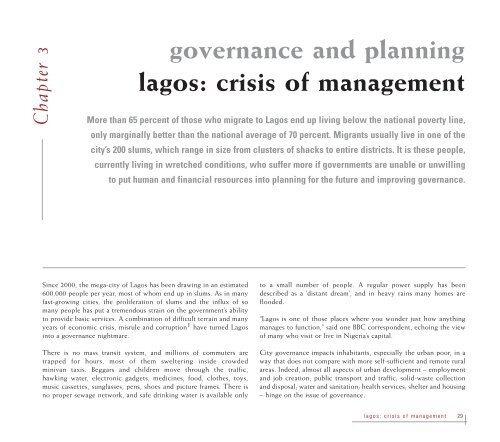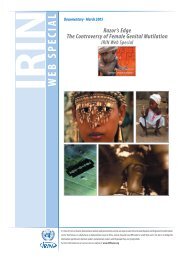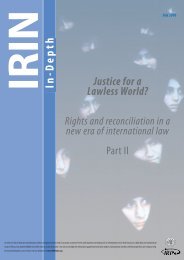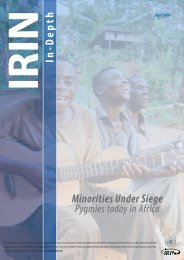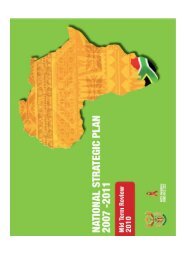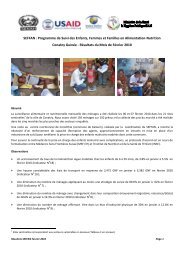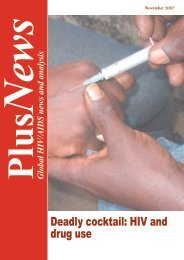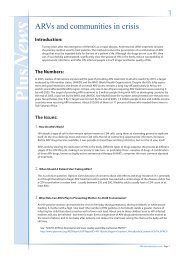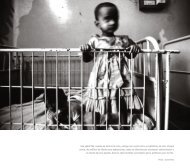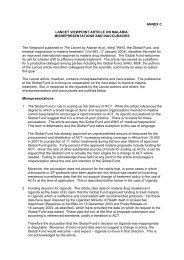Buses drive through crowded Oshodi market. Lagos is ... - IRIN
Buses drive through crowded Oshodi market. Lagos is ... - IRIN
Buses drive through crowded Oshodi market. Lagos is ... - IRIN
You also want an ePaper? Increase the reach of your titles
YUMPU automatically turns print PDFs into web optimized ePapers that Google loves.
Chapter 3<br />
governance and planning<br />
lagos: cr<strong>is</strong><strong>is</strong> of management<br />
More than 65 percent of those who migrate to <strong>Lagos</strong> end up living below the national poverty line,<br />
only marginally better than the national average of 70 percent. Migrants usually live in one of the<br />
city’s 200 slums, which range in size from clusters of shacks to entire d<strong>is</strong>tricts. It <strong>is</strong> these people,<br />
currently living in wretched conditions, who suffer more if governments are unable or unwilling<br />
to put human and financial resources into planning for the future and improving governance.<br />
Since 2000, the mega-city of <strong>Lagos</strong> has been drawing in an estimated<br />
600,000 people per year, most of whom end up in slums. As in many<br />
fast-growing cities, the proliferation of slums and the influx of so<br />
many people has put a tremendous strain on the government’s ability<br />
to provide basic services. A combination of difficult terrain and many<br />
years of economic cr<strong>is</strong><strong>is</strong>, m<strong>is</strong>rule and corruption 1 have turned <strong>Lagos</strong><br />
into a governance nightmare.<br />
There <strong>is</strong> no mass transit system, and millions of commuters are<br />
trapped for hours, most of them sweltering inside <strong>crowded</strong><br />
minivan tax<strong>is</strong>. Beggars and children move <strong>through</strong> the traffic,<br />
hawking water, electronic gadgets, medicines, food, clothes, toys,<br />
music cassettes, sunglasses, pens, shoes and picture frames. There <strong>is</strong><br />
no proper sewage network, and safe drinking water <strong>is</strong> available only<br />
to a small number of people. A regular power supply has been<br />
described as a ’d<strong>is</strong>tant dream’, and in heavy rains many homes are<br />
flooded.<br />
“<strong>Lagos</strong> <strong>is</strong> one of those places where you wonder just how anything<br />
manages to function,” said one BBC correspondent, echoing the view<br />
of many who v<strong>is</strong>it or live in Nigeria’s capital.<br />
City governance impacts inhabitants, especially the urban poor, in a<br />
way that does not compare with more self-sufficient and remote rural<br />
areas. Indeed, almost all aspects of urban development – employment<br />
and job creation; public transport and traffic; solid-waste collection<br />
and d<strong>is</strong>posal; water and sanitation; health services; shelter and housing<br />
– hinge on the <strong>is</strong>sue of governance.<br />
l a g o s : c r i s i s o f m a n a g e m e n t 29


